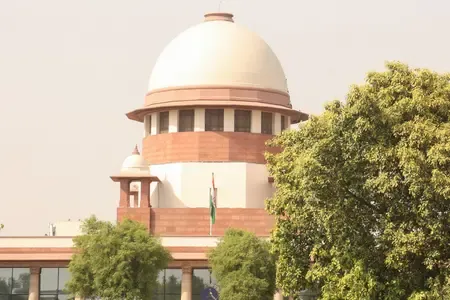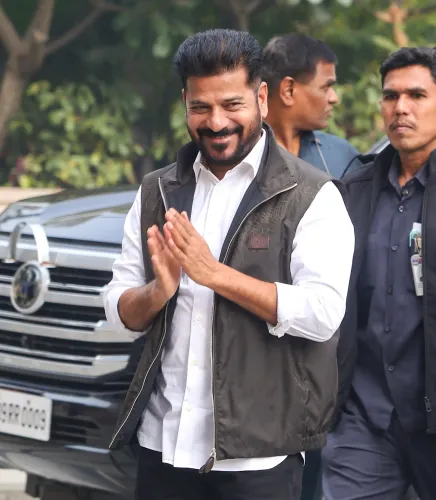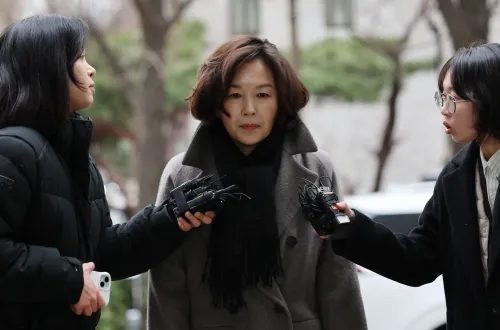Did the SC Just Cancel Chhota Rajan's Bail in Hotelier Murder Case?

Synopsis
Key Takeaways
- Supreme Court cancels Chhota Rajan's bail.
- Rajan convicted in multiple criminal cases.
- Significant implications for organized crime in India.
- Shetty's murder was a high-profile case.
- Rajan has a lengthy history with law enforcement.
New Delhi, Sep 17 (NationPress) The Supreme Court on Wednesday revoked the bail granted to mafia boss Rajendra S. Nikalje, known as Chhota Rajan, concerning the high-profile murder of Mumbai hotelier Jaya Shetty in 2001.
A panel of Justices Vikram Nath and Sandeep Mehta approved the Special Leave Petition (SLP) from the Central Bureau of Investigation (CBI), which contested a ruling from the Bombay High Court that had previously allowed Rajan's bail and suspended his life sentence.
Justice Nath's bench acknowledged the arguments put forth by Additional Solicitor General S.V. Raju, representing the CBI, highlighting that Rajan has been convicted in four additional cases and had evaded capture for approximately 27 years.
Following a conviction by a Special MCOCA Court for this notorious murder case, where he received his second life sentence in nearly nine years, Rajan proceeded with an appeal to the Bombay High Court.
In October of the previous year, a bench comprising Justices Revati Mohite-Dere and Prithviraj K. Chavan suspended his sentence while his criminal appeal was under consideration, resulting in his release on bail. However, Rajan was unable to utilize this bail due to his ongoing life sentence in Tihar Central Jail for the 2011 murder of crime journalist Jyotirmoy Dey.
The case surrounding Jaya Shetty's murder was included in a compilation of 71 serious offenses provided by the CBI to the Indonesian authorities after Rajan was apprehended in Bali and deported back to India in November 2015.
On May 4, 2001, Shetty, who owned the Golden Crown Hotel in South Mumbai, was assassinated by two gunmen following an order from Rajan, who was a fierce adversary of the fugitive terrorist don Dawood Ibrahim Kaskar, creating a significant uproar in both the hospitality and political sectors.
After a protracted trial, Special Judge A. M. Patil of the MCOCA Court declared Rajan guilty and sentenced him to life imprisonment, along with co-accused Rahul Pansare, Ajay Mohite, and Pramod Dhonde.
Shetty had fallen victim to an alleged extortion scheme and had been assigned police protection, which was unfortunately revoked a few months before his assassination.










